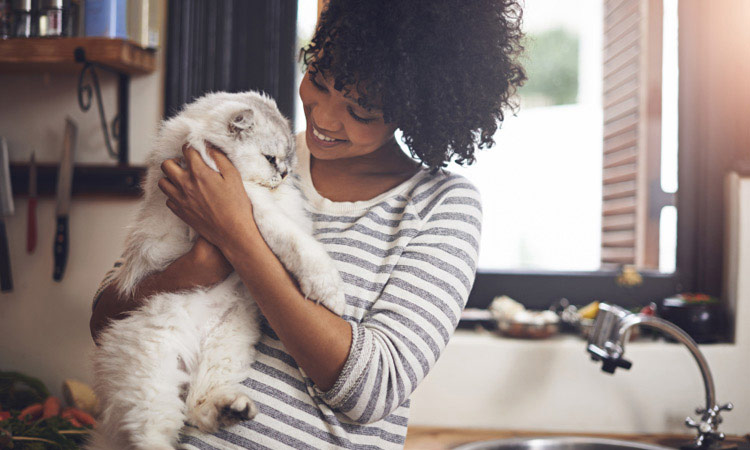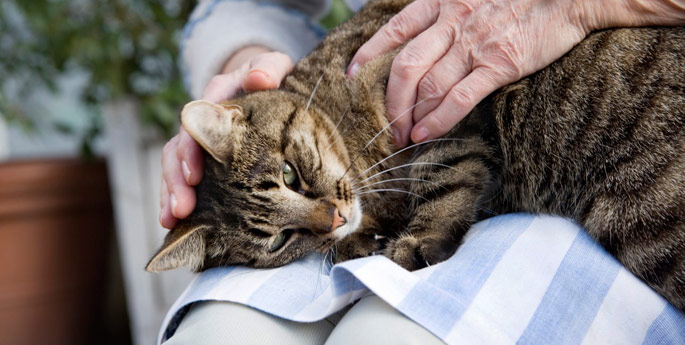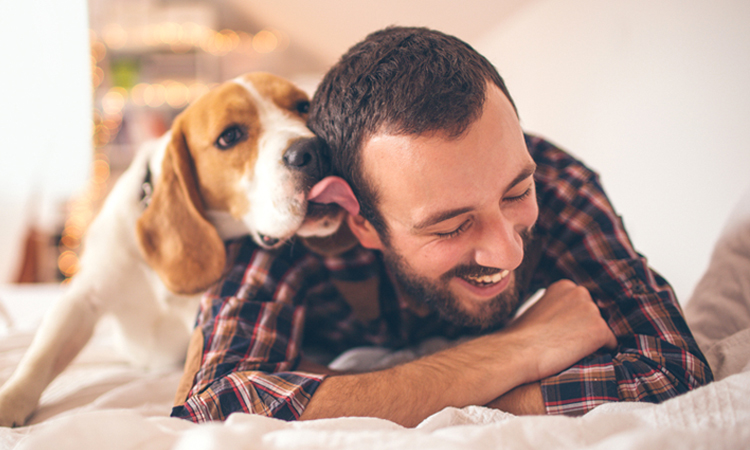Your furry best friend can improve your health
Everyone knows that people love their pets. Furthermore, research published in Hypertension finds that having a pet can significantly decrease stress and blood pressure.
The idea of animals having positive mental and physical health benefits is not a new concept. Ancient Egyptians worshipped cats, Native Americans believe that eagles are messengers from God, and Hindus believe that cows are sacred – among many other examples.
Modern science continues to reveal new insights about what animals feel and how they can serve as therapists for people with specific conditions. As a result, interactions between humans and animals have become more common in medical practices. Documented in schools, hospitals, nursing homes, hospice care, physical therapy and drug-abuse programs, our animal friends such as dogs, cats, birds, fish and horses are being utilized more frequently for their natural healing powers.
How animals heal

In the Frontiers of Psychology, a review of 69 studies revealed a wide range of health benefits from animal-human interaction. Findings include:
- Improved mental and physical health, namely, cardiovascular benefits
- Improved social attention, behavior, interpersonal interaction, and mood
- Reduction of stress as measured by cortisol, heart rate and blood pressure
- Reduction of self-reported fear and anxiety
Besides being cute, loyal and loving, how exactly does this happen?
Rebecca Johnson, nurse and head of University of Missouri’s College of Veterinary Medicine Research Center for Human/Animal Interaction, says studies focus on the idea that animals increase people’s oxytocin levels, the chemical that helps us feel happy and trusting.
How animals help: those with autistic disorders
For individuals with autism disorders, especially children, dogs can be a perfect companion. Because individuals with these disorders have a lack of sensory and emotional awareness, dogs can help with their distinctive bark, specific odor and striking appearance, which helps trigger a response in people with low sensory and emotional levels of arousal.
How animals help: the elderly

With chronic aches and pains that the elderly face, having a lovable companion is scientifically proven to help ease that pain. A study at a pain management clinic compared patients who spent time in the waiting room with a therapy dog and those without one. Meaningful pain relief was reported in 23 percent of patients with dogs, but only 4 percent without.
Pets also greatly help the lonely and those facing death. A famous example is Otto, a tortoiseshell white cat in a Rhode Island nursing home who curls up with patients on their beds during their last few hours of life. Instinctively, Otto will curl up with them when he feels oncoming death and has been correct in his assessment in more than 50 cases. This inclination may be the result of detecting a scent associated with dying, or some other biological indicator.
Animals help soothe or take on people’s illnesses
You might have heard stories of cats and dogs moping around when their owners are ill – or even taking their illnesses on completely. There may now be scientific evidence to back it up.
“People are beginning to realize the untapped resource that companion animals present for research in human health,” according to Rodney Page, director of the Colorado State University’s Animal Cancer Center. Animals also can contract the same illnesses as humans can, such as mumps, salmonella, tuberculosis and MRSA.
Having a living, breathing companion will help ease loneliness and stress, which can also be linked to physical ailments. Explore training your own dog to provide these services with the help of Liz Palika’s book, Love on a Leash, A Guide to Pet Therapy. Give an extra hug to your dog or cat tonight, or adopt a pet in need.




1 Comment
Jenny Perkins
Hi there,
I checked out your awesome site https://www.rewireme.com and thought I would reach out! If you are open to it, I’d love to pitch a guest post.
Let me know! I’d love to send over a few ideas.
Kind Regards,
Jenny Perkins
Content Coordinator @ HerePup